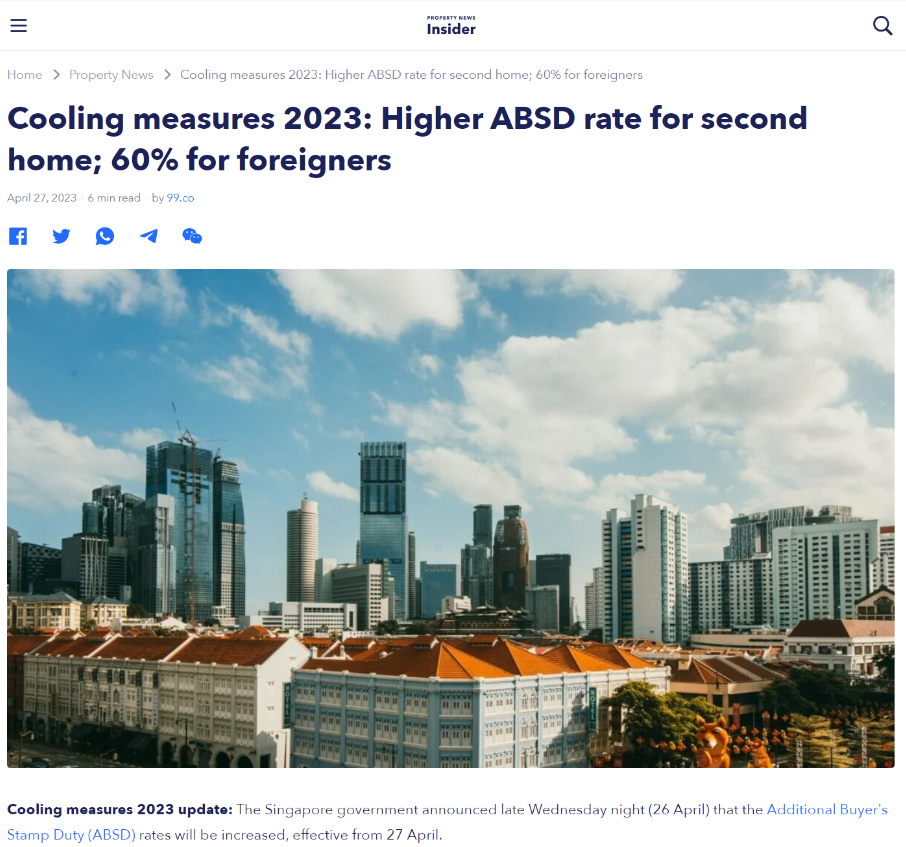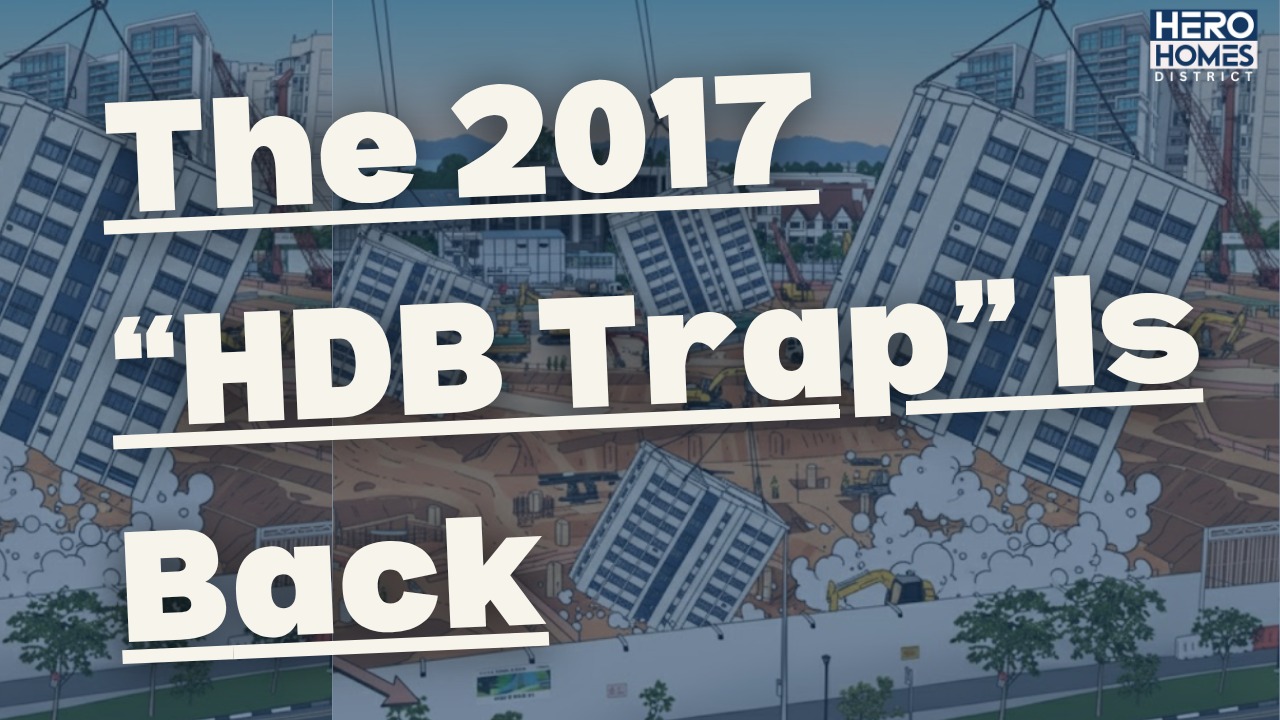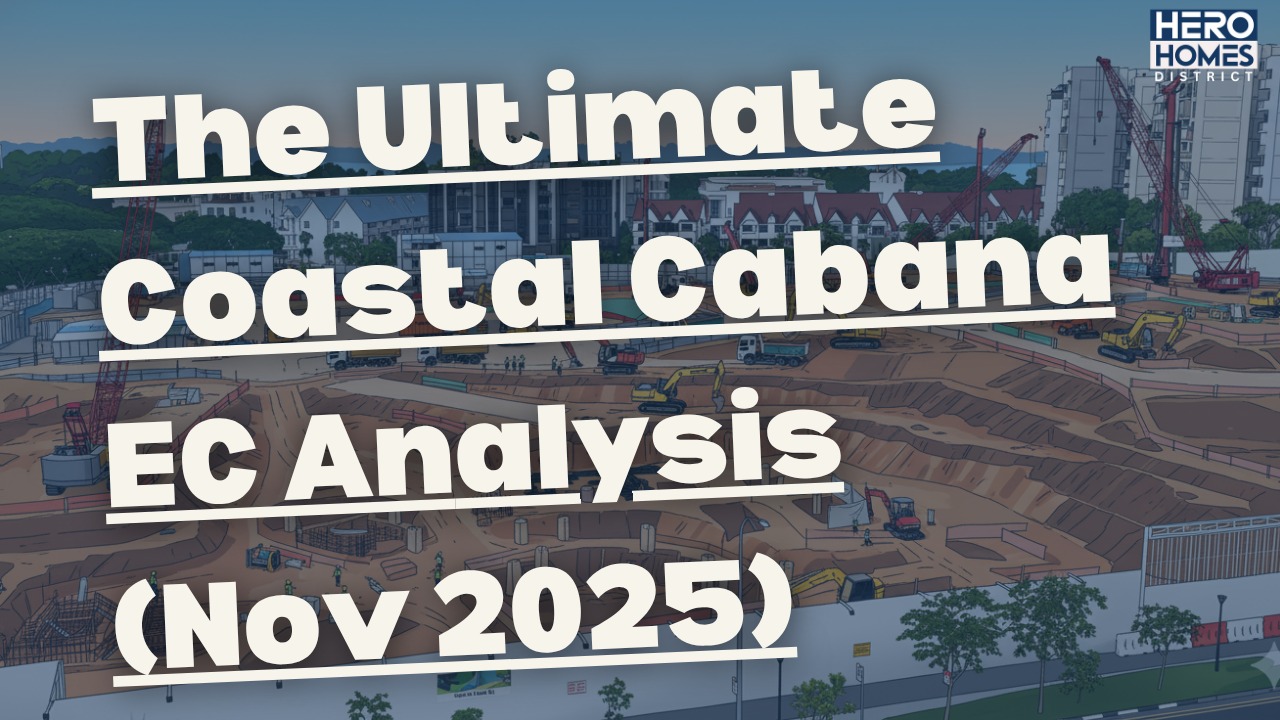Singapore’s dynamic real estate market recently saw the introduction of new property cooling measures.

The highlight of these measures is the staggering increase in the Additional Buyer’s Stamp Duty (ABSD) for foreigners, which has been raised from 30% to a formidable 60%. Amid the buzz surrounding these changes, an intriguing speculation has arisen – could these measures be aimed at enticing high-net-worth individuals (HNWIs) to apply for Singaporean citizenship? Our Herohomes agent, Jamiro Bey came up with the following possibilities.
While the Ministry of Home Affairs (MHA) has staunchly refuted this claim, we find it compelling to delve deeper into the relationship between these developments and the recent spike in foreign property buyers.
- New Property Cooling Measures
The Additional Buyer’s Stamp Duty (ABSD) is a tax on the purchase of residential properties in Singapore. The key change in the new policy is the increase in ABSD rates for foreigners. The rationale behind these new cooling measures is to moderate the growth of residential property prices and maintain a stable and sustainable property market. However, this has coincided with a significant rise in the number of foreign property buyers in 2022, sparking debates and speculation.

- HNWIs and Singapore Citizenship
In 2023, reports suggest a noticeable number of HNWIs obtained Singapore citizenship. Despite these observations, the MHA has released a statement dismissing the notion that the new property cooling measures are a tool to encourage HNWIs to apply for citizenship.
However, given the city-state’s renowned financial stability, low tax rates, and world-class infrastructure, it’s not surprising that Singapore is an attractive prospect for HNWIs.

- Evolving Demographics of International Property Investors
In recent years, the profile of foreign investors in Singapore’s property market has seen a noteworthy shift. The changing geopolitical landscape, attractive return on investment, and increased digital connectivity have all played a part in this evolution.
As these demographic shifts continue to unfold, they have far-reaching implications for the property market and the broader economy.
- Linking Cooling Measures to HNWIs Citizenship (Speculative)
The increase in ABSD undoubtedly creates a significant financial burden for foreign investors.
However, for HNWIs, the benefits of Singapore citizenship – including lower property taxes and unrestricted property ownership – may outweigh these costs.
While it’s important to stress that this is purely speculative and refuted by the government, it does raise questions about the potential strategic manoeuvres in play.

Though it is highly speculative to suggest that Singapore’s new property cooling measures are a ploy to encourage HNWIs to apply for citizenship, and despite the MHA’s dismissal of such claims, it’s an intriguing hypothesis to explore.
The recent spike in foreign property buyers in 2022 and the changes in Singapore’s property landscape point towards an evolving dynamic.
As we continue to observe these shifts, we cannot discount the potential implications for Singapore’s economy and social strata.









